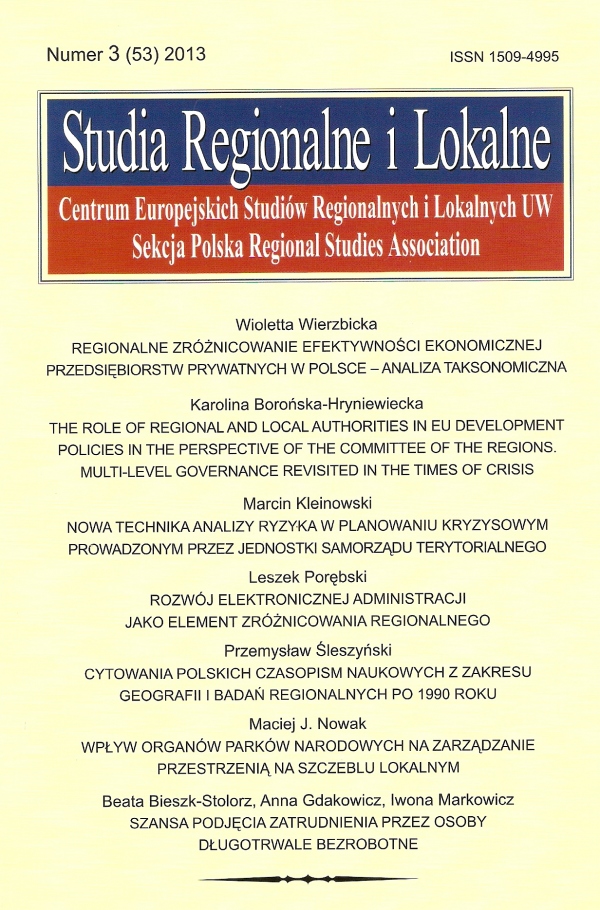Issue:
3(53)/2013
Karolina Borońska-Hryniewiecka
The role of regional and local authorities in EU development policies in the perspective of the Committee of the Regions. Multi-level governance revisited in the times of crisis
DOI: 10.7366/1509499535302
Rola władz regionalnych i lokalnych w unijnej polityce rozwoju z perspektywy Komitetu Regionów. Rządzenie wielopoziomowe w dobie kryzysu
Władze regionalne i lokalne stoją obecnie przed podwójnym wyzwaniem projektowania własnych strategii rozwoju regionalnego w taki sposób, aby z jednej strony realizowały one potrzeby i oczekiwania wspólnoty regionalnej, z drugiej natomiast odpowiadały celom rozwojowym UE. Poniższy artykuł podejmuje próbę oceny efektywności wybranych mechanizmów rządzenia wielopoziomowego, które pozwalają na włączenie władz regionalnych i lokalnych w proces tworzenia oraz implementacji polityk unijnych. Przeprowadzona analiza wskazuje na szereg słabości w systemie rządzenia wielopoziomowego, tj. brak lokalnych zasobów administracyjnych, niedostateczna europeizacja elit regionalnych oraz słaba komunikacja pomiędzy poziomem unijnym, narodowym i regionalnym.
The role of regional and local authorities in EU development policies in the perspective of the Committee of the Regions. Multi-level governance revisited in the times of crisis
Regional and local authorities today face a twofold challenge of delivering locally responsive policies in accordance with EU development goals. For this reason they need to align their development strategies with European guidelines. This paper determines the drivers and hindering factors behind the effective involvement of local and regional authorities in drafting and implementing EU policies with territorial impact. It evaluates several examples of multi-level governance operating in the institutional context of the EU and identifies its most important weaknesses such as lack of regional administrative capacities; insufficient Europeanization of subnational elites
and inadequate communication between EU, national and regional levels.



